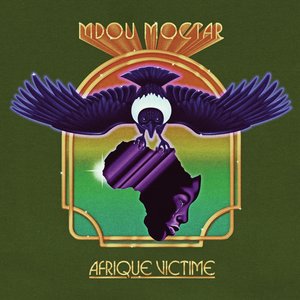Published on Jul 1, 2021
Self-taught, left-handed Touareg guitarist Mdou Moctar’s latest album Afrique Victime was recorded seemingly effortlessly by a straightforward standard four-piece band (voice, two guitars, bass and drums) and delivers the joyous assembly of a King Sunny Ade concert inspired by Sonic Youth’s earliest forays at CBGB’s.
The hypnotic rhythm and melodic forays of Moctar’s Saharan guitar technique owes nothing to Western popular electric (or acoustic) playing. He soars over the strings ambidextrously – fluttering over the neck with his right hand and attacking the strings with his left hand stirring a mix of simultaneous chaos and order.
Born in 1986 in Agadez, a desert village in Niger, Mahamadou Souleymane, now known as Mdou Moctar, was originally inspired by the African guitarist Abdallah Oumbadougou. Moctar wrote, produced and perfomed in the first Tuareg-language film, a remake of Purple Rain called Akounak Tedalat Taha Tazoughai (in English “Rain The Color Of Blue With A Little Red In It”).
While recording Afrique Victime, in Niamey (the capital of Niger) the band performed the songs as works in progress on the street outside the house where they were staying, and within a couple of evenings, their performances gathered crowds of listeners of all ages who came from all over the city, to dance, play air guitar and celebrate the music with the band. You can find several recordings of these spontaneous concerts on YouTube.
While the album is ostensibly a protest against the colonial exploitation of the African Nations, including mediations on religion, love, women's rights and inequality, the musical exaltations and sonic grandeur make the listener share the wonder and the excitement of the band in full flow, whether they understand the lyrics or not. My recommendation to the first time listener of Tuareg guitar playing is to listen to my favorite track “Untitled” which echoes Terje Rydal’s playing, and/or the title track “Afrique Victime” first.
While the album may represent an aquired taste for many, once you’ve actively listened to Moctar’s incisive and soaring guitar work, you’ll experience the sensation of subsequently having less admiration for the narrow-minded pyrotechnics of modern western electric guitar playing.
